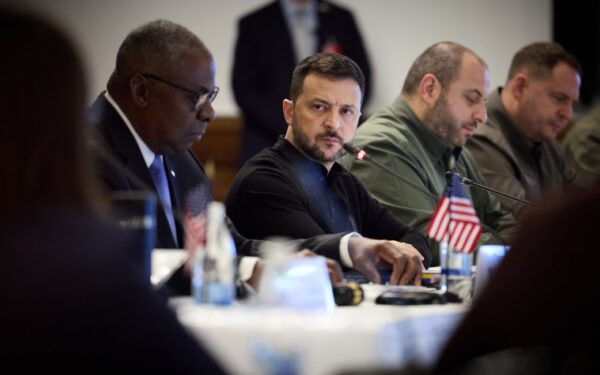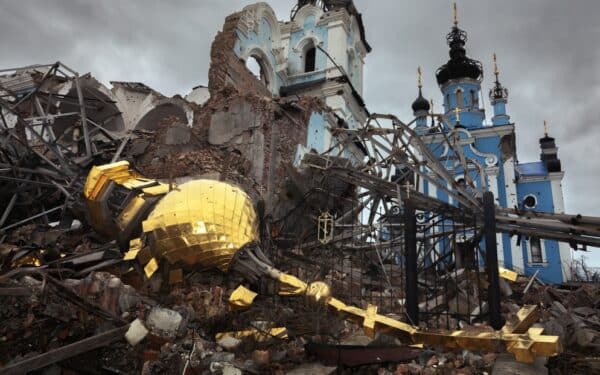On Sunday 10 December, Javier Milei officially assumed the role of President of Argentina, and Milei The President appears to be more moderate than Milei The Candidate. Gone are some of the more radical proposals of the campaign trail, such as legalising organ sales, easing access to firearms, and abolishing abortion.
Prior to the election, he launched vitriolic attacks on China and Brazil, stating that South America’s second largest economy “would not trade with communists”, and calling Pope Francis a “son of a b*tch”. After winning, however, he has struck a much more conciliatory tone with China and Brazil, stating that trade will continue with both, inviting Lula to his inauguration, accepting a congratulatory message from Xi Jinping and extending an invitation to the Pope to visit his native Argentina.
His appointment of Luis Caputo as Minister of Finance spelled the end of his flagship proposal to immediately dollarise the economy and eliminate the central bank. Caputo is a moderate, who served in the previous conservative government between 2015-19 and is opposed to dollarising in the near future. The so-called ‘Messi of finances’ will instead focus on more orthodox fiscal and monetary methods to fix the ailing economy.
While abandoning some of his more unorthodox proposals in the face of political and economic restraints, Milei’s government will be very different from the previous Peronista administration. If his campaign was epitomised by his pledge to dollarise, his administration has been marked by his catchphrase that “there is no more money”, with his focus falling on reducing the deficit. He has already cut the number of government ministries from eighteen to nine, in an effort to reduce spending.
The libertarian has stuck to his promise of a fiscal readjustment, true to his word that “the blow will fall on the public, rather than private sector”. He used his inaugural address to announce an austerity programme, with $20bn of budget cuts – equivalent to 5% of the total GDP. The new regime has also worked to eliminate capital and currency controls, devaluing the official peso rate by 50% – a move which will lead to short-term inflation, but was welcomed by the head of the IMF, Kristina Georgieva, stating that this will “contribute towards stabilising the economy”.
The speech was the first time a President has delivered their inaugural speech on the steps outside of the Congress building to a large crowd of supporters; breaking the protocol of Argentinian Presidents who normally address the legislative assembly. This was symbolic – Milei wanted to direct his speech to the people, rather than to the “political caste” whom he had campaigned against. It was also an attempt to ensure popular support for his reforms.
The newly elected President went to painstaking lengths to highlight the problems that Argentina is confronting, claiming that his government is “facing the worst inheritance in the nation’s history”. He criticised the outgoing government, saying that they had led the country to the precipice of hyperinflation, and that without his intervention, “inflation could rise to 15,000%, and poverty could reach 90%”. Given that Milei’s promised shock measures will cause hardship for many Argentines at least in the short-term, they need to be convinced that the situation is indeed so bad that the suffering which his intervention will bring is necessary.
By his own estimate, poverty will increase sharply, and inflation will be around 20-40% monthly for the next three months. An end to price-capping and subsidies that will increase the costs of public transport, gas, electricity and water will hit the average Argentinian very hard. Reminiscent of Margaret Thatcher, however, Milei maintained that his proposals are the only way forward, stating that “there is no alternative to austerity or shock treatment”.
Milei relies on a continued popular and political will to carry out such drastic measures. Politically, Milei has abandoned his “omnibus bill” plan – which would have forced through all of his reforms in one bill, as it likely would not have passed. Instead, he will seek to rule by decree where he can – specifically in undoing some of the previous administration’s laws – and negotiate other bills’ passages through Congress by seeking support from the traditional centre-right bloc and moderate Peronistas.
Prior to being elected, the self-styled Anarcho-Capitalist promised to “eliminate the political caste” but he has made several allegiances with that very same cast upon assuming office. As his party (La Libertad Avanza) only represents a very small bloc in Congress, governing without support of other parties would be impossible. Patricia Bullrich – a lifelong politician and the traditional right’s nominee for the Presidential elections – was made Minister of Security, in a move designed to placate the mainstream conservative legislators.
While he was elected with a resounding majority – winning 56% of the vote – he does not have a demographically homogenous base that will stick by him through thick and thin, nor does he have the guarantee of support from Congress. While the mainstream right is currently supporting him, they could easily abandon him should public opinion change, leaving him a lame duck president. Milei will hope that by outlining the dire situation in which Argentina is in, he will buy himself time to enact his proposals and inflict damage in the short-term, on the understanding that it is necessary to end the “stagflation trap” that Argentina has been in for the last twelve years.
There is room for optimism, however. Since Milei’s election, the Merval – which is Argentina’s flagship stock index – has risen by around 30%, and the peso’s value has not collapsed as some feared that it might. Argentina could be about to ride a commodity boom with the Vaca Muerta shale pipeline’s completion imminent, which could pump around one million barrels of crude a day, and could turn the net energy importer into a major player in the global energy industry. Further, Argentina has the second largest proven lithium reserves in the world – and with the electric vehicle industry set to boom – this also has the potential to generate billions of dollars of exports. Should Milei navigate Argentina’s economy out of the tumultuous waters in which it is currently sailing, the country’s future could look incredibly bright.
It will require deft political skill and communication to ensure that all of his proposals can pass through Congress, and that the public do not turn against him when the inevitable recession arrives, and reality bites as subsidies end. Javier Milei winning the election as an outsider was a remarkable achievement. Governing successfully might be an even more difficult challenge.
Ben Kwasnik is an International Political Economy Masters degree student at Kings College London who spent two years living in Latin America.
Write to us with your comments to be considered for publication at letters@reaction.life





